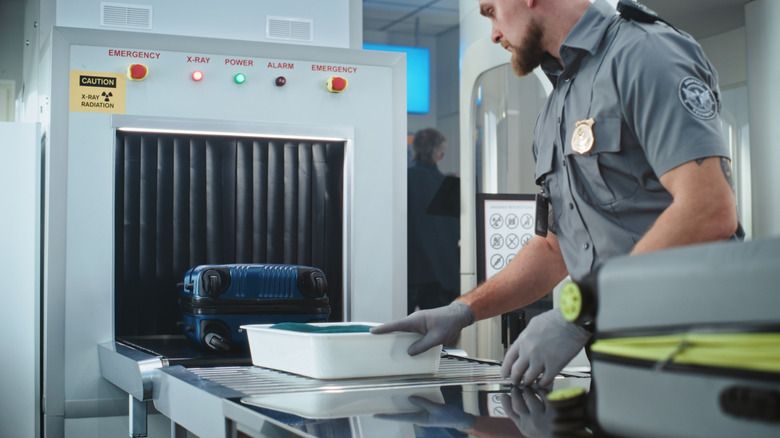
Dried coconut might seem like the perfect choice for a snack to pack in your bag during a trip: it's lightweight, shelf-stable, and delivers a tropical burst of energy mid-flight or during a long layover.
But before you toss that bag of dried coconut into your carry-on or checked luggage, know that it could sabotage your travel plans in more ways than one. Dried coconut, especially in the form of copra (the dried meat of the coconut), is considered so flammable that it's listed as a Class 4 Dangerous Good by the International Air Transport Association. That puts it in the same category as matches, lighters, metal powders, and batteries. Dust from the dried coconut can be easily ignited, and its natural fats may heat up in certain conditions. Though dried coconut isn't generally banned on planes, some countries, like the U.K., take a strict stance on coconut. The U.K. Civil Aviation Authority has outright banned coconut meat from hand luggage because of its highly combustible properties.
The problem lies in the high oil content of dried coconut. When stored in warm environments — like the cargo hold of a plane or a sun-soaked car trunk — this oil can start to oxidize. In tightly packed conditions with little airflow, that oxidation process builds heat, and in extreme cases, it can lead to spontaneous combustion. It doesn't happen often, but it's enough of a risk that aviation authorities have flagged dried coconut as a material that needs to be declared and handled with caution.
Read more: The Odd Reasons TSA May Have Pulled You Aside For Additional Screening
Coconut Is Often Flagged At Airport Screenings

Be especially careful if you're traveling to or from India: A spokesperson from Mumbai's Chhatrapati Shivaji Maharaj International Airport revealed to Condé Nast Traveller India that dried coconut accounts for approximately 9% of all prohibited items found in check-in bags at the airport. Security agents and other airport security personnel are trained to err on the side of caution, and any anomaly picked up on a scanner can lead to delays, questions, and luggage inspections.
Also, dried coconut is still subject to agricultural declaration rules in many countries due to its plant origin and potential biosecurity risks. In Australia, coconut products — including dried, shredded, or desiccated coconut — must be declared upon arrival and may be subject to inspection. The Australian Department of Agriculture, Fisheries and Forestry classifies coconut as a "surveillance food," meaning it can be randomly tested for pathogens like Salmonella or Listeria during importation, even when commercially packaged. Similarly, in New Zealand, all dried plant products must be declared, including coconut flakes or grated coconut. The country's Ministry for Primary Industries warns that even commercially packaged, shelf-stable food can be confiscated, and you may be fined for not declaring it. The same goes for many other countries around the world, so research thoroughly before packing those plane snacks.
So, if you're craving dried coconut, it's best to buy it after you've reached your destination. You will avoid unnecessary airport drama, an already stressful experience for most.
Ready to discover more hidden gems and expert travel tips? Subscribe to our free newsletter for access to the world's best-kept travel secrets.
Read the original article on Islands.












